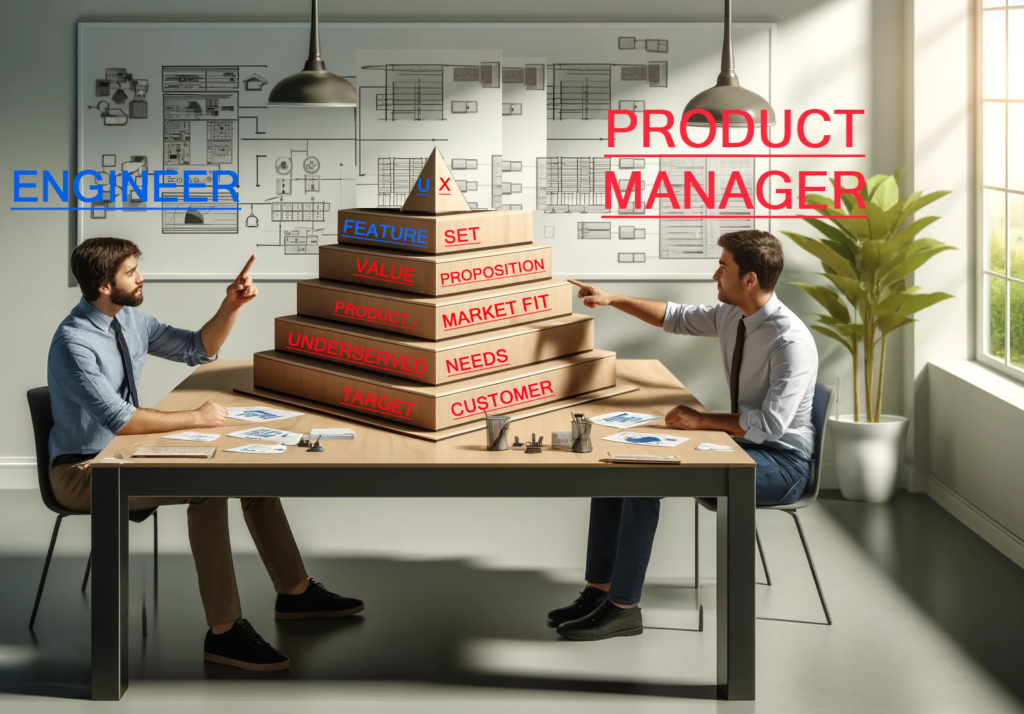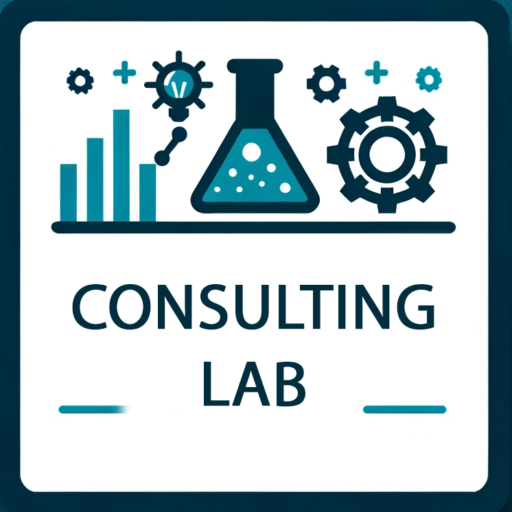
I recently read the insightful blog post “Good Product People” by SVPG, and it sparked some thoughts based on my experience. This post is my response to SVPG founder Marty Cagan’s point that “so many of the best product people I know are in fact engineers.” While the article accurately highlights the essential qualities of effective product managers, I believe it misses an important point: the tendency of engineers untrained in product management to jump from problem to solution too quickly, often bypassing the crucial stages of validating product-market fit, as emphasized by the Lean Startup methodology.
In my humble experience, engineers are often technically execution-driven and focus on technical details and solutions prematurely during discussions on product strategy and roadmaps. If you look at the Lean Startup pyramid, product managers should focus on the entire pyramid, ensuring alignment from the vision to the product-market fit, while engineers often concentrate on the feature set and UX.
While a deep understanding of technology is crucial, neglecting the design and validation phases can lead to products that may not fully align with user needs or market demands. Effective product management requires balancing technical feasibility with a clear vision of the product’s value and market fit. It’s crucial to maintain this balance to ensure that technical decisions support the overall business objectives rather than overshadow them.
With additional training and a broadened perspective, a good engineer can indeed become a good product manager by learning to consider the entire product lifecycle and strategic goals.
To all aspiring product managers and tech leaders, remember to keep the broader picture in mind and guide your teams to align their technical expertise with strategic goals. This approach not only enhances product success but also fosters a more cohesive and visionary team dynamic.
Leave your comments on my LinkedIn Post
